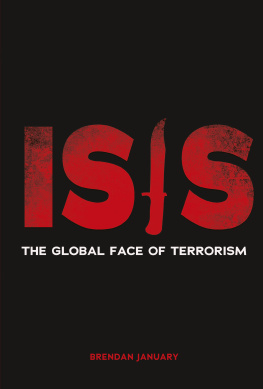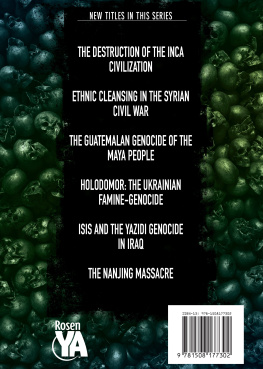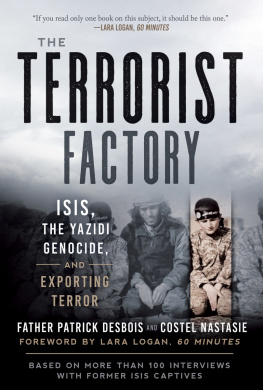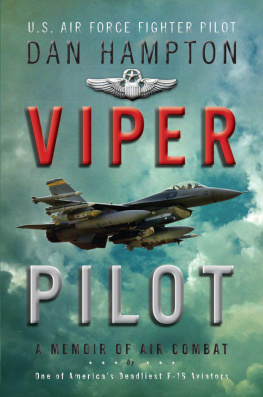Note to reader: The names of many of the Yazidis and some of the private citizens who appear in this book have been changed for security reasons. The identities of people in public life, as well as the American military veterans who played key roles, are all real.
We have also chosen to use the common Western spelling of Yazidi, rather than the traditional Yezidi, so as not to confuse readers. However, we have elected to use the historic name of Shingal, rather than its more popular counterpart, Sinjar. The region of Shingal in northern Iraq is sacred to the Yazidi people, and as it is also the site of the genocide, we did not feel it should be altered for the telling of this story.
Copyright 2020 by Shaker Jeffrey and Katharine Holstein
Jacket design by Amanda Kain
Jacket image courtesy of the authors
Jacket copyright 2020 Hachette Book Group, Inc.
Hachette Book Group supports the right to free expression and the value of copyright. The purpose of copyright is to encourage writers and artists to produce the creative works that enrich our culture.
The scanning, uploading, and distribution of this book without permission is a theft of the authors intellectual property. If you would like permission to use material from the book (other than for review purposes), please contact permissions@hbgusa.com. Thank you for your support of the authors rights.
Da Capo Press
Hachette Book Group
1290 Avenue of the Americas, New York, NY 10104
HachetteBooks.com
@HachetteBooks
Twitter.com/HachetteBooks
Instagram.com/HachetteBooks
First Edition: February 2020
Published by Da Capo Press, an imprint of Perseus Books, LLC, a subsidiary of Hachette Book Group, Inc. The Da Capo Press name and logo is a trademark of the Hachette Book Group.
The Hachette Speakers Bureau provides a wide range of authors for speaking events. To find out more, go to www.hachettespeakersbureau.com or call (866) 376-6591.
The publisher is not responsible for websites (or their content) that are not owned by the publisher.
Library of Congress Control Number: 2019950503
ISBNs: 978-0-306-92283-1 (hardcover); 978-0-306-92282-4 (e-book)
E3-20200110-JV-NF-ORI
For the lost, taken, and every precious survivor. Whatever comes, may the Yazidi identity endure.
ISIS has made no secret of its intent to destroy the Yazidis of Sinjar, and that is one of the elements that allowed us to conclude that their actions amount to genocide.
UN COMMISSIONER CARLA DEL PONTE, UN COMMISSION OF INQUIRY ON SYRIA
Come in under the shadow of this red rock
And I will show you fear in a handful of dust
THE WASTE LAND, T. S. ELIOT
T HEY CAME FOR US ON THE VERGE OF DAYBREAK IN A LONG LINE of beat-up trucks, dark scarves shrouding their faces. It was August 3, 2014, in the Nineveh Province of northern Iraq. The whole village was slumbering in small gray houses, roosters yet to crow. Sky and ground shared a murky oneness like the vast bottom of an ocean. Into that deep quiet, the air suddenly began to vibrate. I sat up, stared into nothing, and listened. Others were also waking, getting out of beds, moving to windows. It was a heavy sound, full of weightof both metal and intention. You could feel it in your chest. Then, over the rising hum of those engines and through a wake of exploding dust, we heard the genocidal cries of their holy hatred.
In the just-rising sun, I could see them out there, approaching fast over the plains, shouting and firing off machine-gun rounds. Those crazed men closed in as though theyd poured right out of an apocalyptic gash in the earth. Black flags and a few mortar shells; it didnt take much more than thatwe knew exactly who they were and what they wanted. Some people stayed in their shuttered homes, cowering, did all they could to keep the children quiet. Others fled right into the hot morning haze without shoes, without anything whatsoever.
In the end, I was one of those who ran. Ran faststraight out over the land that was ours long before time. The summer air was filthy; the new sun, blood-red. Suddenly, I didnt know the day, or the hour. None of us did. We didnt even know who we were anymore. But who we were was why we were runningrunning toward our hallowed mountain that rose in the searing distance like an ark.
As a boy Id watched my father work that land, his white shirt billowing like a sail as he moved along the cucumber fields. My frail king was long dead and I was alone among the tens of thousands who were with me, a hailstorm of gunfire and the shrieks of women erupting in our stampede of terror. Reduced to a pack of wild animals, we clambered far up the rocky mountainside. Mount Shingal was our only possible refuge now, perched high over the endless wasteland of ISIS-infested desert. Our shrines had stood there for centuries, and we knew that steep terrain as well as we knew ourselves. Better, even. When you came across a bullet-riddled body, you just moved over it and kept going for the top.
Two months earlier, I was a senior in high school studying for final exams, and everyone expected me to be first in my class, as Id always been in the past. Only I knew that I was in danger of failinghadnt so much as touched a textbook in years. People said in time it would get betterthe nightmares, daymares, and the tremorsbut a farmers son doesnt peel off a whole war like a Band-Aid.
At barely seventeen, Id run away to sign up as a combat interpreter in Mosul, the most terrorist-infested city in the nation. It was the post-9/11 age of occupation and insurgency, the Wests War on Terror in full swing. Now, I look back on that era as the cataract of a monstrous and unyielding storm.
Over the next four years, I went out in full fatigues, supporting American brigade teams as they hunted down terrorist networks across a massive web that spanned the country and stretched over its borders. I was shot atmore than once, I was hit; saw members of my team killed right in front of me. The huge entanglements of radicals we were after didnt seem to have an end, and as far as I knew, didnt have a beginning either. When you got rid of one viral cell, twenty more came back with a vengeance.
Through it all, I made lifelong friends: Texans and Californians, New Yorkers and Idaho boys whod come there just like I had, straight out of a dust bowl. After the Western forces withdrew, I went back to my village fluent in American slang, met the girl I wanted more than anything to marry. Believed the worst was over.
I was wrong.
The very beast the West had tried to Shock and Awe and annihilate was after me now, out of its cage and making chase across the rocky plains of Shingal. Under one name or another, theyd hunted my people for a thousand years.
I kept my eyes fixed to the mountain now, and the multitude moving toward it, their combined chaos stirring up massive clouds of earth that clogged the air. Several times, I had to stop and cough up mud.
Over 100,000 of us made it to the summit. Up there, on a vast and desolate shelf that seemed to hover in the colorless sky, all you could see was that helpless horde, pressed into a single form, moaning under a crush of baking heat. No trees for shade. No water. No food. People sagged and shivered from thirst in the dirt; the elderly wished out loud to die. It was 120 degrees Fahrenheit. Every infant lay silent in the arms that held it.
O N AN AFTERNOON after the first week, as I slumped over my bed of ground, a faint noise plucked at the stilled air. Slowly, the sound rose and the scores around me draped on the rocks stirred a little. So tired, I peered into the listless void; the world far below enveloped our high refuge like a brown sea. In the faraway haze, I caught a moving form and sat up.







